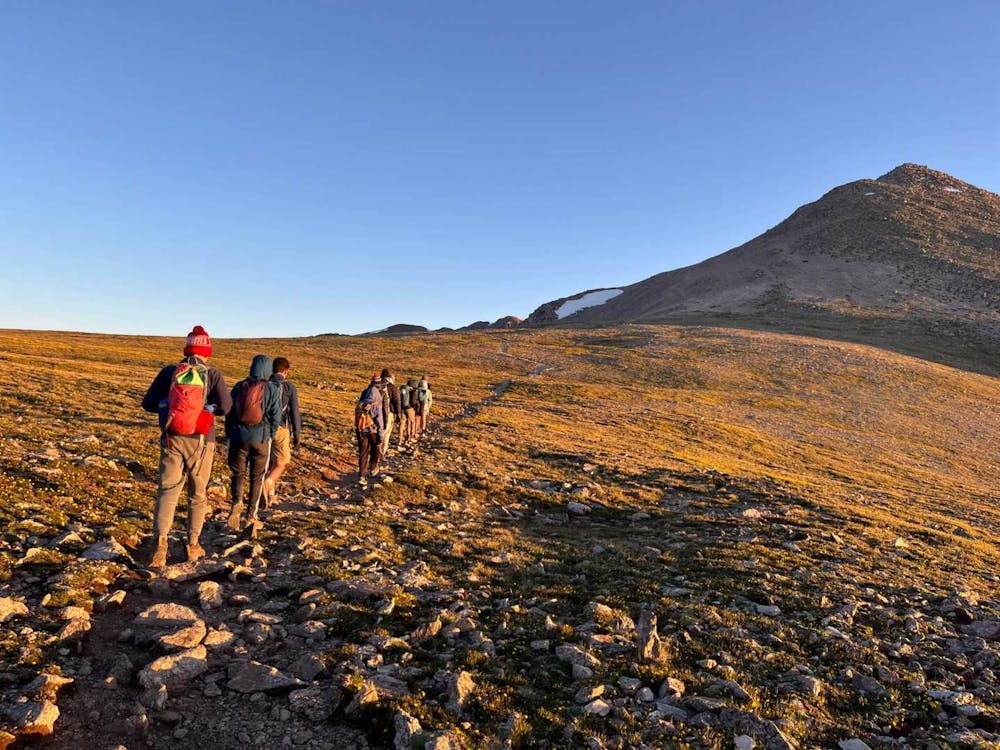Camp is THE Antidote

High Trails Outdoor Education Center welcomed our first students today and we are all getting REALLY excited about the upcoming summer. And we are grateful for the exceptional parents, grandparents and guardians of our students and campers for making the choice to send their child/children to camp. Published a week ago, Jonathan Haidt’s book, The Anxious Generation: How the Great Rewiring of Childhood is Causing an Epidemic of Mental Illness says, quite directly, that children, like our campers, who are given opportunities to be fully disconnected from the “online world” and fully immersed in free-play in the “real” natural world are more likely to have better mental health and find ways to be well and thrive.
Over the last few months and weeks, Haidt has been interviewed by news media, podcasts and on TV shows as broad ranging and diverse as The Joe Rogen Experience, The Ezra Klein Show, The New York Times, Real Time with Bill Maher, Simon Sinek’s podcast, CNN, The Hidden Mind, Christianity Today and PBS. He makes the point, through sifting through an enormous amount of research, that “overprotecting” our kids in the “real” world while “under protecting” them in the “online” world is having major societal and cultural consequences.
Haidt’s thorough research in the book reminds us that:
All children are by nature antifragile. Just as the immune system must be exposed to germs, and trees must be exposed to wind, children require exposure to setbacks, failures, shocks and stumbles in order to develop strength and self-reliance…kids must have a great deal of free play to develop and they benefit from physical play, which has anti-phobic effects. Kids seek out the level of risk and thrill that they are ready for, in order to master their fears and develop competencies.
Beyond the staggering statistics, Haidt dedicates over a ⅓ of the book to solutions for what seems like a currently intractable problem: improving children’s mental health by taking collective action to reconnect children with the “real” world by dramatically decreasing the time they are spending in the “online” world. With strategy and calls to action to everyone from governments to tech companies to schools to parents, Haidt celebrates many of the strategies that make camp such an important and positive developmental space for children of all ages.
We particularly enjoyed this paragraph under his list of “More (and Better) Experience in the Real World”:
Find a sleepaway camp with no devices and no safetyism. Many summer camps offer children and adolescents the chance to be out in nature and away from their devices and the internet for a month or two. Under those conditions, young people attend fully to each other, forming friendships and engaging in slightly risky and exciting outdoor activities that may bond them together tightly. Avoid camps that are essentially summer school, with academic work and internet access, or camps that do not provide children with any communal responsibilities. Try to find a camp that embraces the values of independence and responsibility. If possible, send your child there every summer, from third or fourth grade through eighth or ninth grade–or all the way through high school if they want to transition from camper to counselor. Bonus points for any camp that promises not to post pictures every day on its website. Summer camp is a great opportunity for parents and children to get out of the habit of constant contact and, especially for parents, constant reassurance that their kids are okay.
You may have already picked up on the buzz: smartphones and social media are having a deleterious effect on our kids, schools, communities and culture. For over a decade, we have seen an uptick in parents seeking out a camp experience to help their kids be “unplugged” for part of the summer. Screens are ubiquitous in our daily lives, and the distractions, fragmentation and discord they cause feel challenging at best and dangerous at their worst.
Just like the seminal book by Richard Louv, Last Child in the Woods, published in 2005 that made the case for the important health benefits of time in the outdoors; Haidt’s book offers both a dire warning about the mental, social, emotional and physical health impacts of operating in an online, anxiety inducing “defend mode” versus a real, brain-developing “discover mode.”
We are spending so much time in online spaces that we lose sight of our internal social contracts which allow us to appreciate, respect and deepen our sense of wonder for the world we actually live in. Instead, social media algorithms designed to feed on our fears and insecurities dominate our days and interrupt our nights—keeping us in a hyper alert and fragmented state—and are especially damaging to the mental health of children’s and teens’ developing brains.
But, fortunately, he also demonstrates conclusively that connected communities, child-driven free play, opportunities for independence and authentic, distraction-free relationships are the antidote.
Thus the antidote truly IS camp.
This is your next book club read, the next podcast you share with your kids’ school administrators, the next conversation you have at the dinner table (without phones) and the next book you will share with your friends, relatives and anyone who is interested in “how to reclaim human life for human beings in all generations.”
Thank you, Dr. Haidt…but more than anything thank YOU all for knowing, in your heart, gut or mind, that a camp experience is important.

